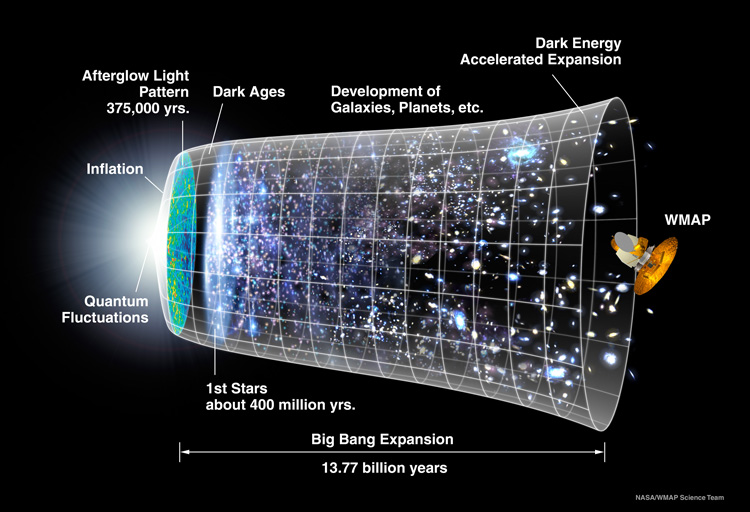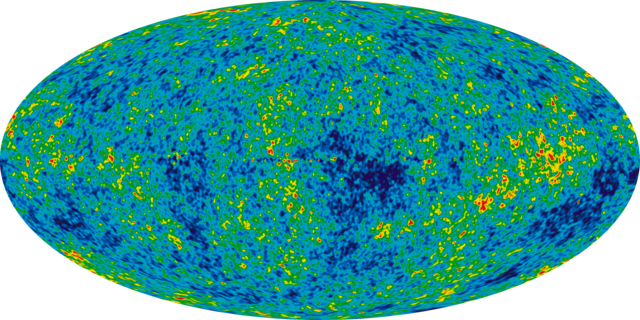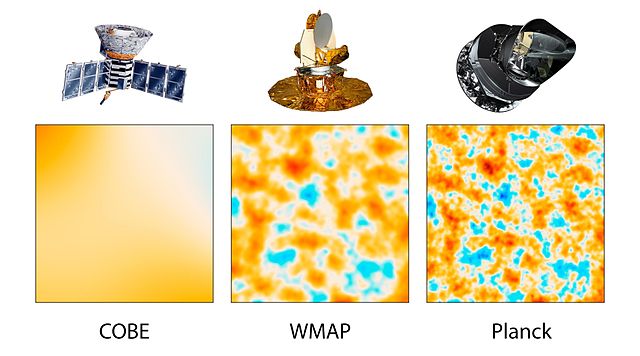New beliefs
After you’ve completed reading this post and the prior one, you can take this short, fun quiz to test your knowledge!
In the beginning, God created the heaven and the earth…. And God saw everything that he had made, and, behold, it was very good…. And the evening and the morning were the sixth day.
The ability to revise and, when necessary, revoke former beliefs are a hallmark of intellectual honesty. Moreover, intellectual honesty is as vauable as any kind of honesty. In yesterday’s post , I quoted the theoretical physicist Michio Kaku (also see the Wikipedia reference).
I mentioned Kaku’s mental goldfish experiment and what his super-smart goldfish might have known if they had the consciousness to observe their surroundings. If they had been able to notice the raindrops on the surface of the pond, they might have wondered, What’s happening up there? Why is it doing that?
In the same way, Kaku caused me - a believer in Creationism - to see the raindrops. For humans, the raindrops occurred when we sent up a satellite called the WMAP satellite. The long name for the satellite was the Wilkinson Microwave Anisotropy Probe. Of course you know that it takes 8 and 1/3 minutes for the sun’s rays to get to Earth. In some ways, then, light is a time machine. The light that enters our eyes from the Sun took eight minutes to enter our eyes. The same principle applies to light from the distant Universe, billions of years ago. Physicists, though, turned their attention to microwave background radiation: Would the microwave background radiation reveal something about the origins of the Universe?
The main purposes of the WMAP (and COBE before it, Planck after it) was not to look for light from the Sun but to look way back into time for microwave radiation. The math predicted they would be able to see this radiation. Actually seeing what they predicted was amazing, though! Over nine years they looked back into time, surveying the entire sky from space.
Look at the left side of this picture, the greenish-yellow area. That’s what WMAP saw!

This is the idea behind COBE, WMAP, and Planck.
The greenish-yellow area on the left side of the image represents the image gathered by the WMAP satellite. Image credit: NASA
It was the following image - in a single half-hour of reading - that triggered a glacial shift in my beliefs.

The WMAP all-sky survey at 9 years. It’s resolution is much better than COBE and reveals how the Universe looked about 380,000 years after the Big Bang.
Image credit: Wikipedia (you can see the exact same image on NASA.)
Some years later, the Planck Satellite was sent into space with some similar mission goals. You can see a video on the Planck survey below!
For years I believed the Earth was created in six days. But, with new evidence I had to revise my beliefs. It may not seem a big leap to you, Dear Reader. But, it was to have consequences in my social connections with those who insist things (the Bible, the Constitution, social structures, etc.) are immutable and as perfect as the day they were created.
We should routinely ask ourselves, What would it take for me to change my belief in X? What else is there? When we are willing to reconsider even our deeply held ideas, those ideas are falsifiable: no matter how deeply held, we are willing to consider that those ideas may be false. For people who won’t let go of a belief under any condition, that belief is not falsifiable. All our beliefs should be open to revision. All of them. It’s scary to think we might have to let go of a belief. We should acknowledge how hard it is to revise our beliefs. I’ve been doing that a lot in the past few years.
What do you believe that’s immutable and needs revision?
We don’t get extra credit for holding on to an unsustainable belief.
If you’re still reading and interested, here’s a couple of additional images: Here’s the progressive resolution differences between COBE, WMAP, and Planck. See how they get better?
Still there? Watch this amazing 2018 summary of the Planck Survey:
